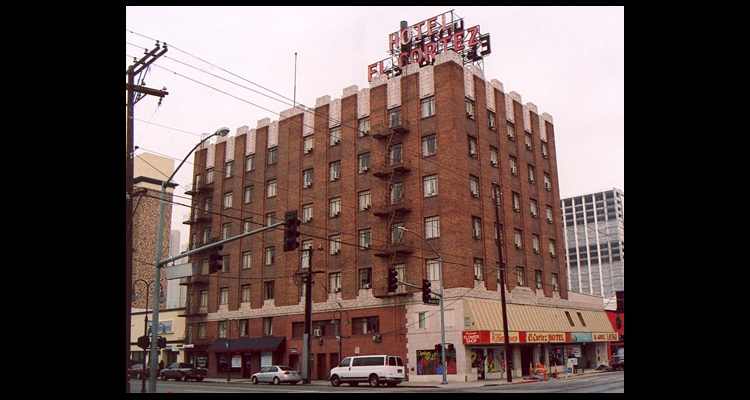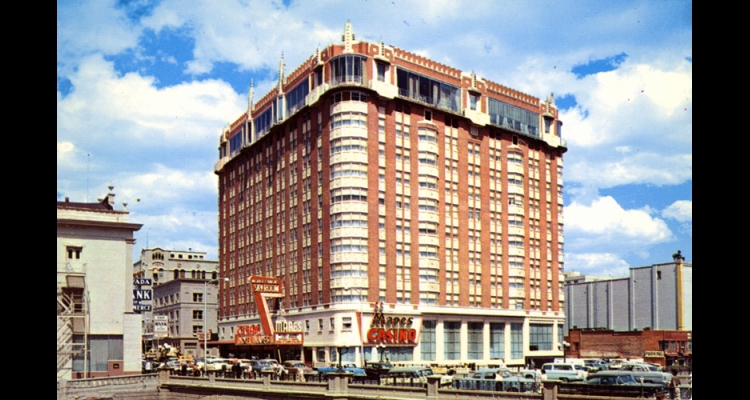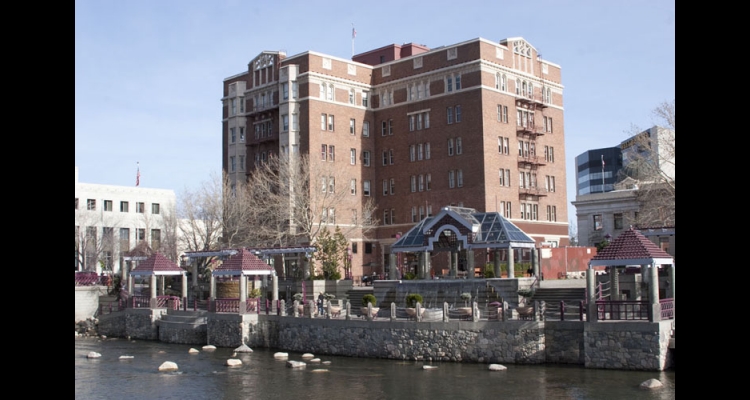Jews in Reno Gaming
Betting on races, fights and cards was a part of life in early Nevada. Jews were participants in these pastimes, and those who owned saloons were party to the practice. After the legalization of gambling in 1931, Jews were prominent in Reno gambling. Those who had plied their trade elsewhere and illegally often came under investigation.
The introduction of legal gambling was part of Nevada's need to diversify its dependence on mining after 1877. Former B'nai B'rith lodge officer and saloon owner Al Livingston became the president of the Reno Athletic Club in 1905. It was the only agency permitted to sponsor boxing matches, which included organized betting. Reform groups successfully lobbied to end legal gambling in 1911, but enforcement was loose and loopholes were common. Gambling flourished under the guise of private clubs, with token memberships paid at the door.
Gentiles William Graham and James McKay operated an illegal gambling room, which was licensed as the Bank Club the day after legalization in 1931. They hired a Jewish boxer, the intimidating Jack Sullivan (born Jack B. Scarlett), who later managed the Club for a one-third ownership, while they served prison time. All three had been associates of "Jew Nick" Abelman when he was running saloons and clubs in many of central Nevada's mining camps. Abelman opened Reno's upscale Ship and Bottle Club in 1932, and three years later he and several partners leased George Wingfield's Riverside Hotel and Casino.
Syrian-born Abe Zetooney built the seven story Art Deco El Cortez Hotel, which he leased immediately to three Bulasky brothers, who added a casino and the Trocadero Night Club. Joseph and Sadie Zemansky came to Reno in 1937 from a successful resort business in Mexico. They leased Club Fortune at Center and Second Streets (originally William Levy's Palace Dry Goods) and hired Sam Erlich as manager. The Club hosted Sammy Davis, Jr.'s first Reno performance in 1944. The lease holder, Jack Sullivan, sold the building to a group of Jewish investors including Sanford Adler, Louis Mayberg, Morris Brodsky, and Charles Resnick in 1948. Adler—recently ousted from the El Rancho in Las Vegas—spent a half million dollars remodeling the facility, which became the Club Cal Neva. Adler fell behind in tax payments, and it was rumored that he had unsavory silent partners in his ventures. In 1955, Adler failed to appear before the Nevada Gaming Commission and permanently lost his state license.
In 1950 Sullivan tried to sell his one-third share of the Bank Club to Joseph "Doc" Stacher, a well-known bootlegging associate of Meyer Lansky. Stacher had been arrested in the 1920s for a slew of felonies. The Nevada Gaming Commission blocked the sale, and Stacher went searching for a piece of casino action in Las Vegas. He was deported to Israel in 1960. Two others who had been active in illegal gambling ventures in Florida and Michigan were Louis and Mert Wertheimer. Mert took over the Riverside lease from Abelman in 1949, and Louis leased the Mapes Hotel with fellow Jews, Bernie Einstoss and Leo Kind. The Wertheimers purchased the Riverside outright from Wingfield in 1955, but they did not outlive their ten-year lease.
Brothers Joseph, George, and Henry Hornstein came to Reno in the 1930s, and over the next thirty years had interests in the Nevada Turf Club, the Colony Club, the Palace Club, and the El Morroco Club in Las Vegas. Jewish partners in some of these ventures were Jack Austin, Harry Weitz, and United Jewish Appeal organizer, Frank Cohen. Maury Mason built casino properties in Miami and held a share of the Riviera in Las Vegas before moving to Reno, partnering with his sons in the Horseshoe Club in 1967. They held interests in Reno's Silver Spur Casino and the Sparks Shy Clown Casino through 1988. One of the managers at Mason's Horsehoe Club was Sam Silverberg, who retired as cantor emeritus from Temple Emanu-El.
In 1970, David Farahi and his family moved from Iran to the United States and purchased a tiny motel on South Virginia Street. Although most believed that Reno had reached its casino capacity with the erection of the giant MGM Hotel, the Farahis turned the property into the Clarion Hotel and later the successful Atlantis Casino Resort Spa, completed in 1999. While many Reno gambling figures had only a marginal connection with a Jewish organization, the Farahis were prominently involved in Jewish affairs.
Article Locations
Related Articles
None at this time.
Further Reading
None at this time.


